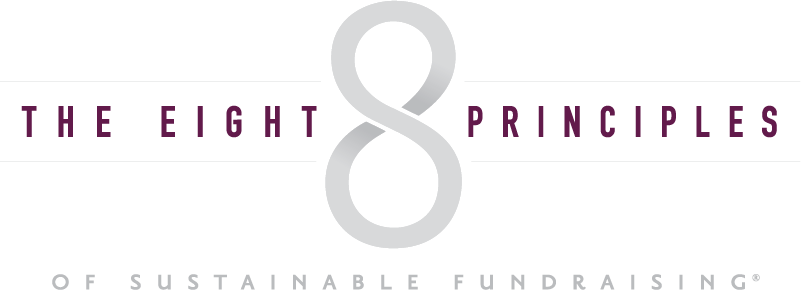
By: Martin Leifeld, Vice Chancellor for Advancement, University of Missouri-Saint Louis
Principle 3 of The Eight Principles™ is Leadership Leads™. Larry emphasizes that board members have the responsibility to support their organization with commensurate giving which deepens their commitment to the organization and signals success for other potential donors
For our purposes today, I suggest that before we even begin to talk about donors, we start with ourselves – those of us who are professionals who ask for money.
As one of many fundraisers, you are a passionate person. You believe wholeheartedly in the purpose of your organization. You are skilled in putting that mission into words that donors can understand and appreciate. And you ask them to be as generous as they possibly can be.
We must ask this of ourselves as well. Fundraisers must set an example. By doing so it will strengthen our passion and our attachment to our organizations. In turn, that will help us become that much more persuasive. As a donor yourself, you will know that you are not just a hired hand, but you are a deeply committed advocate for an organization about which you care deeply.
If you have been a fundraiser for many years as I have, you have witnessed how many donors have been transformed through their philanthropy. They will tell you they become better people, more sensitive to the world around them and happier because of it. This is an opportunity for ourselves that we shouldn’t pass up. Fundraisers should make gifts of greater significance, too. And in doing so, we challenge others to step up and do the same.
At the same time, we, as fundraisers, will be able to identify more closely with our donors. We will see the world as they do, having gone through the cycle of fundraising just as they have. Like them we will have to come to terms with a significant gift request. Like them, we will have to consider carefully the financial implications for our families and for our future. And like them, we have to concern ourselves with risk, about giving our money away and the consequences that might come as a result. This makes us better able to empathize with what our donors and prospects are going through when we make an extraordinary request of them. We have been there and done that.
I can think of no better example of this sort of personal philanthropic leadership than Chancellor Tom George and his wife, Dr. Barbara Harbach. Tom is the chancellor at the University of Missouri-St. Louis, and Barbara is a faculty member. They joined with me in planning to take the university’s fundraising campaign, called Gateway for Greatness, from a silent phase to a public phase in 2009. The campaign called on us to get many individual fundraisers, corporations and foundations to make commitments of $1 million or more. These donors we recognized as a group entitled “Partners for Greatness.”
This campaign coincided with the first year of the Great Recession. What on earth could we do to inspire people to give the university a million dollars? I recall having several gift conversations with one couple whom Chancellor George and I had hoped would make a million dollar commitment to the campaign. They were reticent because of the economic uncertainty at the time.
The first thing that Tom and Barbara did was to start with themselves. The two worked with our development team to fashion a $2 million gift that involved long-term, on-going giving and deferred giving. In public university circles such a commitment was almost unheard of on the part of a chancellor and his wife.
“I was delighted that we decided to do this,” Harbach said at the time. “But most important to me was the decision to make this gift to UMSL now. Tom is leading the university through its largest fundraising campaign ever. We thought it was essential that he show other potential donors that we are making a significant personal commitment to the community and campus.”
Their gift commitment astounded and riveted our community and received quite a bit of attention in the local media. When I returned to those donors who we had targeted for Partners for Greatness, I said look at what our chancellor and his wife, Dr. Harbach, are doing. They’re doing twice what we’re asking of you. Would you not come up to the million-dollar level and be a Partner for Greatness? And join with them to demonstrate your conviction about the significance of this university? And those donors responded. They said, well, if the Chancellor and Dr. Harbach on their modest salaries can do this, given what we have enjoyed in our lives, we will do this too.
The power of leadership in philanthropy is ours. It is up to us to be generous as we ask others to be.

Martin Leifeld serves as Vice Chancellor for University Advancement at University of Missouri-St. Louis. This post is an excerpt from Martin’s forthcoming book. His website provides short video briefings to advise all those who raise money for non-profits, whether staff or volunteer.


